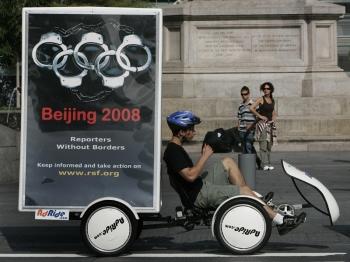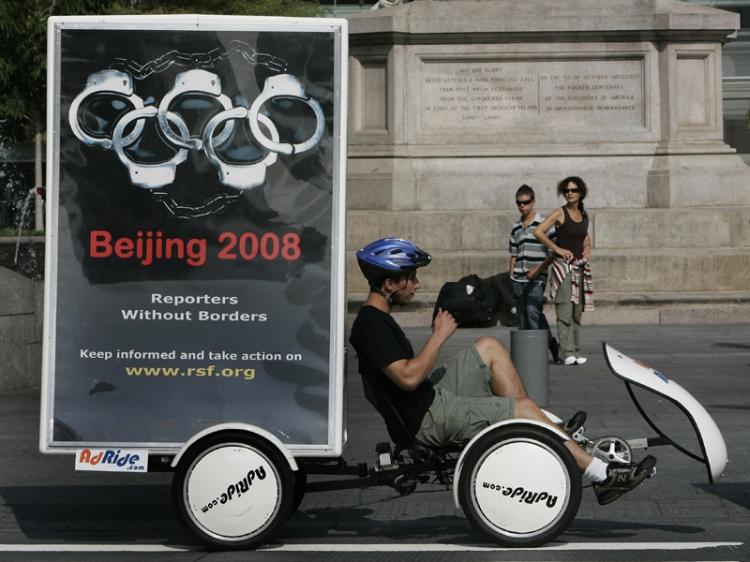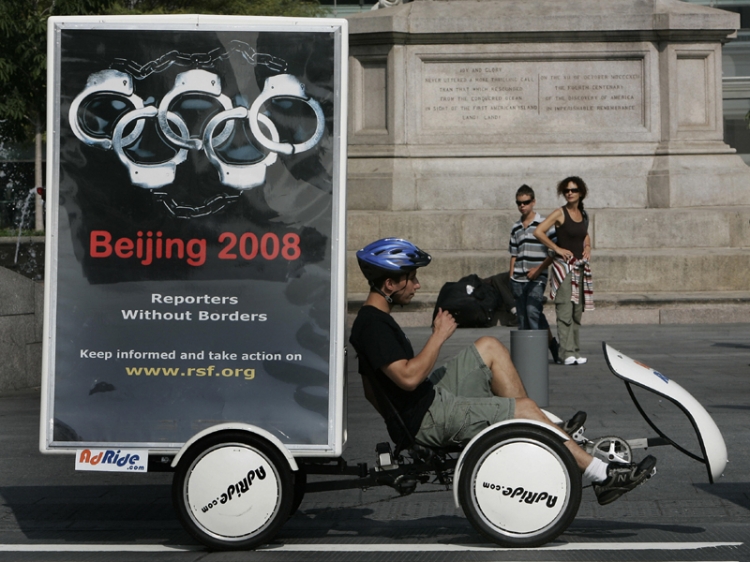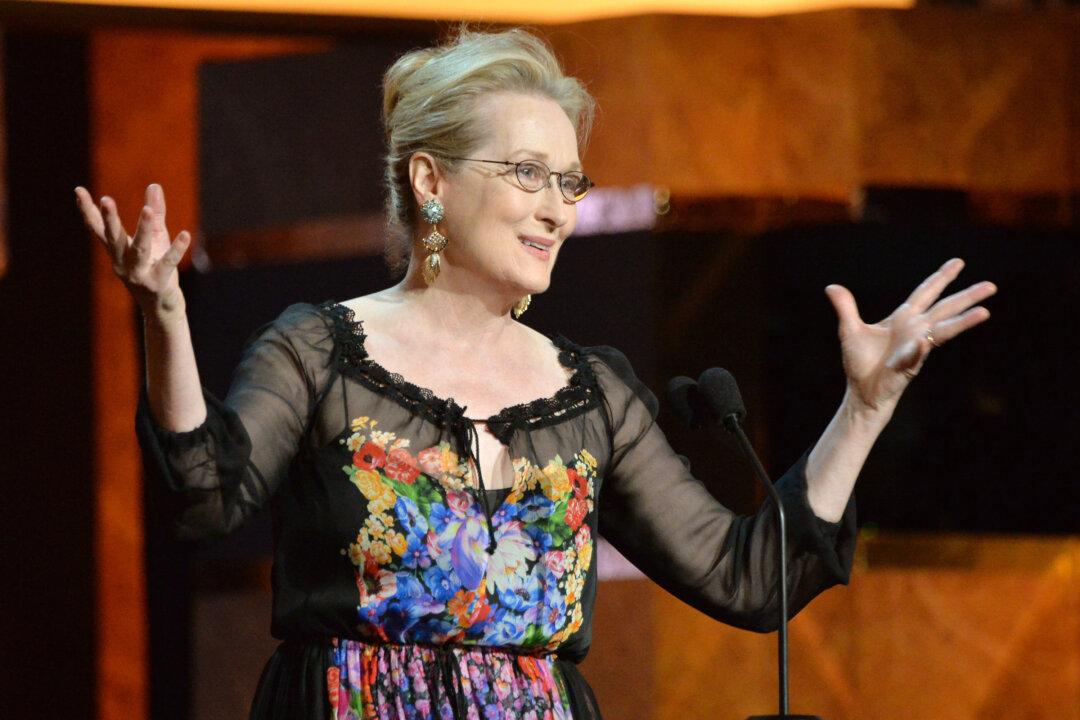Ahead of Olympics, Massive Arrests Spark Intensified Protests
As the Olympics approach, the Chinese regime increases oppression

Bikers with mobile billboards from the Reporters Without Borders group launch an international campaign in New York 07 August 2007 on the 2008 Summer Olympic Games in Beijing. Timothy A. Clary/AFP/Getty Images
|Updated:





